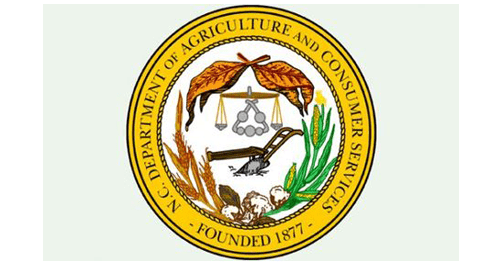The sunny skies and warmer temperatures may be tempting area residents to get outside and burn yard debris, but a local fire ranger urges landowners to use abundant caution to avoid problems.
Just in the last week, fire departments in Vance and Granville counties and the NC Forest Service have responded to 13 wildfires. Of those, seven were caused by debris burning, according to Granville County Fire Ranger Rob Montague.
March through May is recognized as spring wildfire season, and the N.C. Forest Service said that as residents begin spending more time working in their yards, it is important to be responsible when it comes to burning yard debris.
“Every year, almost 40 percent of wildfires in North Carolina are the result of careless debris burning,” Agriculture Commissioner Steve Troxler stated in a press release from the forest service. “To protect ourselves and our forestland from wildfire, we have to be responsible and vigilant. Check the weather. Make sure you’re prepared to burn before you do. Never leave a debris fire unattended, and always have a water source and phone nearby in case you need them,” Troxler’s statement continued.
Contact your county forest ranger for technical advice and options to help ensure the safety of people, property and the forest. Visit www.ncforestservice.gov/contacts to find the ranger in your county.
Consider the following factors before burning yard debris:
- Choose to compost or make mulch. Some types of debris, such as leaves, grass and stubble can be turned into mulch or compost.
- Check local burning laws. Some communities allow burning only during specified hours; others forbid it entirely.
- Make sure you have a valid permit. You can obtain a burn permit at any open authorized permitting agent or online at www.ncforestservice.gov/burnpermit.
- Local fire officials can recommend a safe way to burn debris. Don’t pile vegetation on the ground. Instead, place it in a cleared area and contain it in a screened receptacle away from overhead branches and wires. Keep your pile small, not tall.
- Stay informed about the weather and possible weather changes. Postpone outdoor burning during high winds or gusts, or periods of low relative humidity. Even if you have a valid permit, stop burning if strong winds develop.
- Be sure you are fully prepared before burning. To control the fire, you will need a hose, bucket, steel rake and a shovel for tossing dirt on the fire. Keep a phone nearby, too.
- Never use kerosene, gasoline, diesel fuel or other flammable liquids to speed up debris burning.
- Stay with your fire until it is completely out. To learn more about fire safety and preventing wildfires and property damage or loss, visit www.ncforestservice.gov.
To learn more about protecting your home and property from wildfire, visit www.resistwildfirenc.org.
